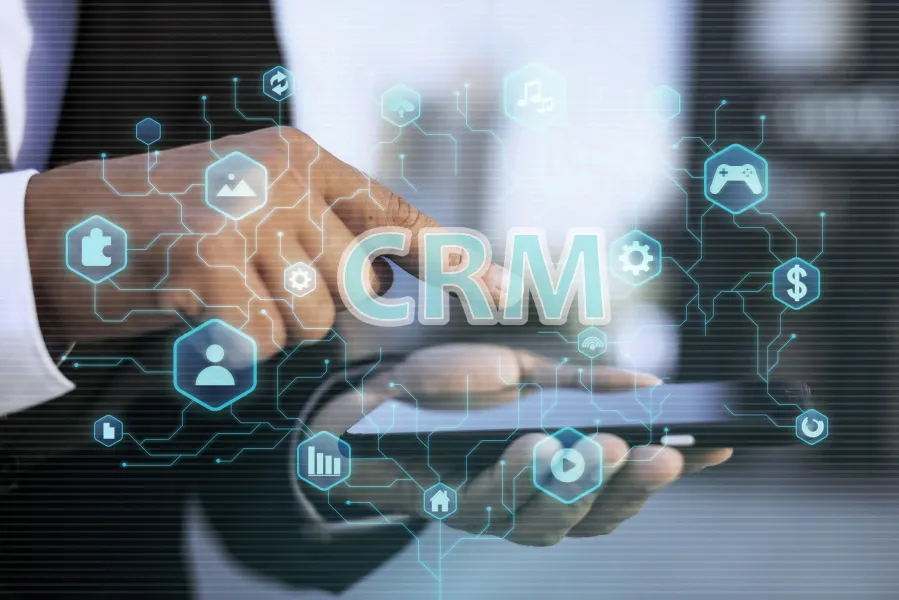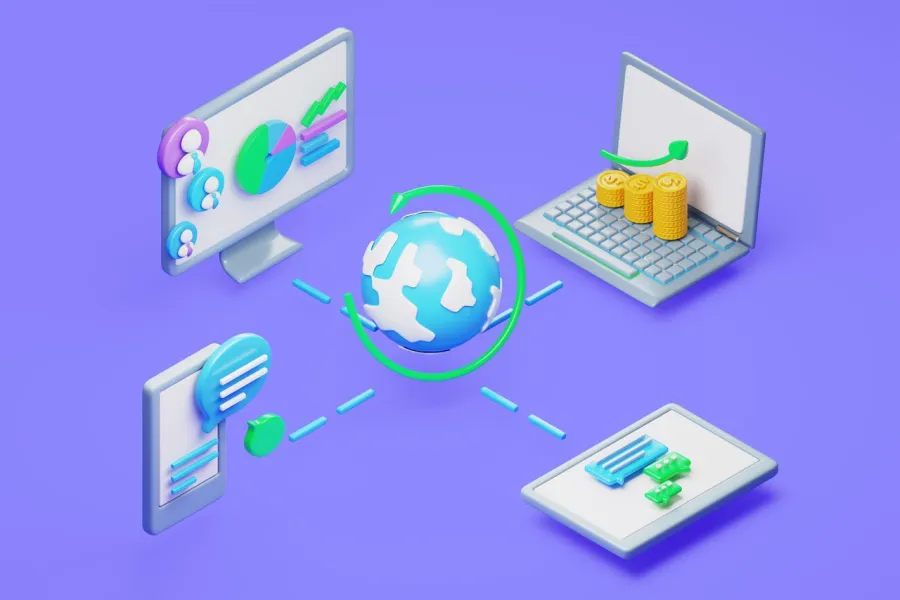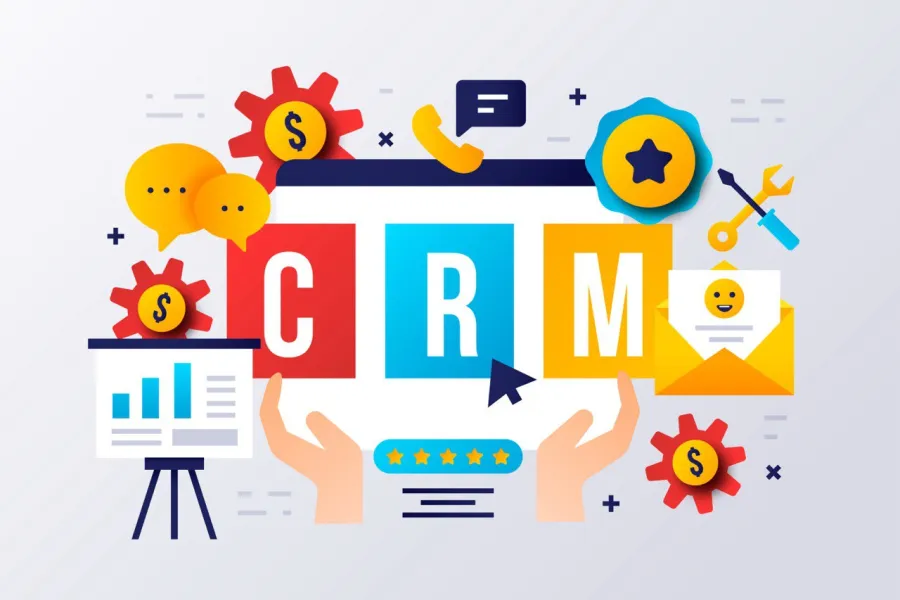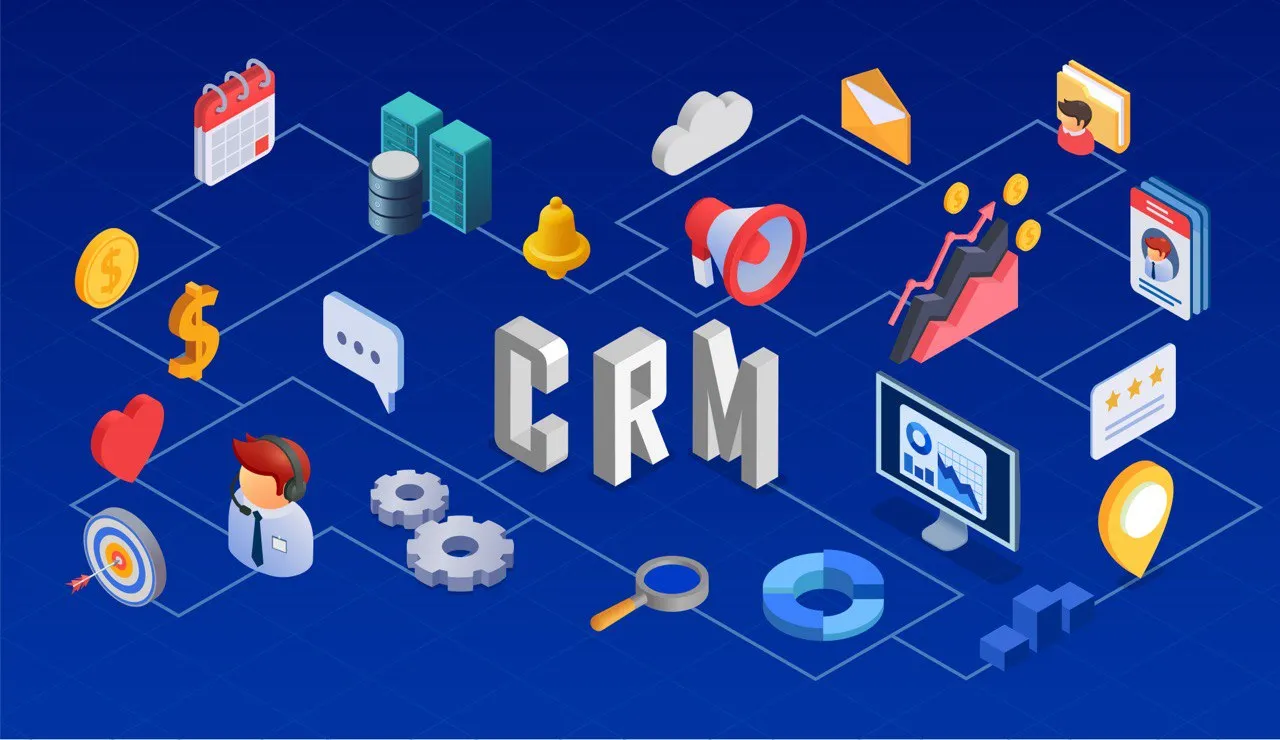The CRM system is a specialized program designed to optimize the interaction of company representatives with customers. Contrary to popular misconception, the CRM system is not an inert array of data, it provides users with powerful tools that allow them to automate communication processes to a large extent.
The abbreviation CRM stands for Customer Relationship Management. Using this approach allows you to build a business based on the needs of the client. To a large extent, this is facilitated by the structuring of stored information about customer orders and the ease of managing this data. The use of CRM shows high efficiency both at the level of a one-time sale and in building a long-term strategy for the development of a business enterprise.
CRM system functions
The competent use of CRM is currently one of the most important aspects of high competitiveness. It is worth noting that the implementation of such a system is most effective at the stage of starting a business, and not when a snowball of poorly systematized information has already accumulated. However, even in the case of delayed implementation, CRM systems can eventually demonstrate sales growth and increase the quality of managers' work.

When a company's profit largely depends on working with clients, a large number of nuances should be kept in mind. It is required to maintain a customer base and take into account all incoming requests, track sales peaks and troughs, fix a communication schedule, set tasks for staff, and analyze long-term business trends... You can solve such a lot of tasks with the help of familiar tools, such as various electronic means of communication, information tables with shared access, calendars with corporate notification, etc. The CRM system combines all of the above services and complements them with other tools that are no less useful for business. Among the numerous functions of CRM systems, the following can be distinguished:
- Information storage and structuring is used to record information about customers, their solvency, the history of completed transactions and the current status of interaction in a single database. A database of suppliers can be organized according to a similar principle.
- The separation of stored information by level of secrecy allows employees to provide different levels of access depending on their positions and authority. The CRM system is one of the simple but effective methods of protecting trade secrets, significantly increasing the information security of the company.
- The formation of service standards simplifies the work of the company's employees and significantly speeds up the processing of incoming orders. In addition, it allows you to set a certain standard for the quality of the company's services, which in the long term has a positive effect on its image.
- Recording incoming requests and automatically distributing them to free managers speeds up customer service and allows you to make a personal offer to each of them.
- Detailed and transparent assessment of the performance of each manager and the sales department as a whole. The CRM system records information about all employee activities, including the number of calls and meetings held, the speed of application processing and task completion. Having such reports helps managers effectively manage staff, encourage strong managers and filter out weak ones.
- The function of managing material assets is used to track cash stocks of consumables or products, which helps to reduce the costs associated with them.
- Tracking the production process at all its stages, from order receipt to product quality control.
- Financial management is one of the fundamental elements of any business. The CRM system can monitor many aspects of the company's accounting and, if necessary, helps to correct them in a timely manner.
Types of CRM systems
It is worth noting that CRM systems are represented in the modern market in a wide variety, different versions of such software can be used for the needs of both large and small businesses. According to the range of tasks to be solved, CRM systems are divided into three main types:
- Operational CRM is focused on sales management, solving marketing tasks, as well as improving the quality of service and customer interaction. Such systems register applications, monitor their processing and systematize information about completed transactions.
- Analytical CRM is aimed at analyzing incoming sales and customer data, identifying trends and tendencies, on the basis of which sales changes are predicted.
- Combined CRM systems help optimize interaction between individual clusters of the company and customers, and also increases the efficiency of information exchange. This is the most flexible and popular type of CRM systems, combining both operational and analytical functionality.

How to choose a CRM system?
The integration of a CRM system into a business is a matter that cannot be approached carelessly. When choosing a specific type of such software, an entrepreneur should first of all rely on the needs of his company and the available range of tasks. There are many different CRM systems, each of which is not without its advantages, but it is safe to identify the following selection criteria:
- Simplicity and ease of use. The effectiveness of the workflow system integration depends to a large extent on this parameter. Mastering an overcomplicated system will require much more effort from the staff and it is not a fact that such an innovation will not lead to even greater difficulties. You can evaluate the functionality of the system and its relevance in the work of a particular company using the trial version.
- Adaptability. At the initial stage, this quality will make it easier to adapt the program to your needs. In the future, the flexibility of the program, if necessary, will allow you to adapt the system to the changed business realities.
- Not all CRM services have a mobile version, which is not suitable for people whose work specifics imply frequent business trips. The CRM system installed on a smartphone or tablet allows the user to be in touch constantly and promptly add important information to the general database.
- The level of integration. If your company has been using established programs, websites, and social networks for a long time, the CRM system you choose must be compatible with them. Otherwise, it threatens either the need to reorganize the company's IT infrastructure, or dissonance in the work of its individual elements.
CRM system capabilities
The need to order a CRM system comes when the business begins to noticeably "slow down" due to a number of organizational problems. Among the difficulties that can be eliminated with the help of a CRM system, the following can be distinguished:
- Lack of data systematization. Many commercial enterprises have been accumulating the necessary information on disparate media for years: from electronic databases and tables to files of documents printed on paper. In this form, the ever-growing volume of information over time causes more and more difficulties associated with its processing. The CRM system allows you to organize and streamline information, which significantly speeds up and simplifies all processing operations.
- The unsatisfactory pace of the organization's work. When using outdated methods of sales organization and customer database, often the productivity and speed of work leave much to be desired. The use of a CRM system will help significantly speed up and optimize many business processes, which will bring the quality of service to a new level.
- Lack of information in the customer base. Often, the company's staff experiences a lack of data about customers, their needs and preferences, which leads to insufficient efficiency in providing services and conducting trade transactions. The ergonomic and transparent organization of the database, which can be implemented using a CRM system, helps to eliminate such a disadvantage.
- Mistakes in the sales process. During the daily routine, the human factor often affects, which can result in incorrect decisions, loss of customer contact information or incorrect order fulfillment. The CRM system helps to develop a general standardization of managers' actions and simplifies the registration of incoming applications, thereby significantly reducing the likelihood of errors.
- Low request processing speed. The customer's satisfaction now largely depends on the managers' response time to incoming requests, and if the waiting period is prolonged, they may prefer to contact your competitor. Automation of processes using a CRM system, among other things, will help reduce the response time of managers to an application.
- A large amount of manual labor. Often, the company's staff has to spend a lot of time processing orders, manually performing routine operations such as registering new data or sending notifications to customers. This situation signals that the business has entered a phase in which process automation has become a necessity. CRM systems automate a significant part of the routine, thereby simplifying and speeding up the work of employees. Ultimately, this leads to a reduction in the possible number of mistakes made and a noticeable improvement in the quality of service.

How is the CRM system implemented?
When choosing a specific CRM system, you should pay attention not only to its cost and basic functionality, but also to the ease of installation and development of the program. There are many CRM systems, the implementation of which requires the participation of a trained specialist with the skills necessary to install and configure this software. Paying a third-party contractor will require additional financial costs, which is why in some cases it would be more appropriate to choose a simpler program.
The degree of complexity of installing the program and importing accumulated data has a significant impact on the speed of implementing a CRM system in a business. In addition, the simplicity of mastering the functions of the program by employees is also of great importance here. It is worth noting that companies offering services for the implementation of CRM systems in Tashkent and Uzbekistan can provide their clients with consulting services and support services.
The ease of development and accessible ergonomics of the user interface of the program have a strong impact on the speed with which the company's staff begins to actively use the CRM system in their work. It is not uncommon for a company to be unable to start its direct operation for months after acquiring a program due to difficulties with mastering.
Therefore, the process of switching to a CRM system should begin with a detailed analysis of the company's needs and the tasks for which the system will be used. In most cases, choosing a program with a wide range of functionality that is not urgently needed does not make any practical sense.

After defining the list of tasks and specifying the goals that you think the CRM system should solve, you should set the stages of the sales funnel. Creating a standard algorithm of actions according to which managers will do their job will help them adapt to new conditions faster. Solutions for situations that fall out of the general scheme will be developed as practice progresses.
Before switching to process automation, it is worth analyzing their stages and distribution by departments. At this stage, the permissions of the accounts of employees who will work in the CRM system are configured. It is important to understand that not all processes should be automated and many important tasks should be left under human control.
Evaluating the effectiveness of a CRM system is possible only after all employees have mastered it sufficiently. This is usually followed by a period of troubleshooting and final configuration of functions. On average, the results may appear after several months of operation of the system.
With an integrated approach, the selection, installation and initial configuration of a CRM system for a specific list of tasks can be quite a difficult task, for which it is better to involve a specialist. An independent solution to this issue can cause loss of time and unnecessary financial expenses for an unsuitable system. The cost of a CRM system can vary in a wide range and depends on the type of software package selected, its functionality and scope of application.
CRM integration into the company's IT infrastructure is carried out through the API, which allows you to connect chats, e-mail, accounting systems, spreadsheets and much more to it. At the same time, many CRM systems provide a decent level of information security thanks to built-in encryption and control mechanisms. In addition, if necessary, the user can use the data backup function, which allows you to save important information in case of unforeseen situations.

In general, CRM systems can be recognized as a fairly universal tool that can adapt to a wide range of tasks in various business areas. Various versions of such software can demonstrate high efficiency both in a huge corporation and in a company with a team of several people. For a large company with hundreds or even thousands of people on staff, a CRM system is vital for coordinating voluminous processes and effectively assessing the current state of affairs.
At the same time, in small teams where one employee can combine several positions, automation of processes using a CRM system allows you to reduce manual labor to a minimum. Thus, the routine burden on the employee is eased, which will allow him to more effectively distribute attention and efforts to solve the most important tasks.
In the long term, the use of a CRM system is often a necessary decision from the point of view of rationality. In some cases, neglect of electronic control and automation methods can lead to hopeless lagging behind competitors and business stagnation.






